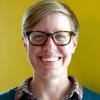6th Annual Big 12 Teaching and Learning Conference
Keynote and Plenary Session Descriptions
The following schedule will be updated until the start of the conference. Unless otherwise indicated, all events will take place in the Texas Union.
Thomas Tobin, “Around the Clock, Around the Block, Mobile and Global, Enhanced: Universal Design for Learning”
Thursday, June 13, 4:30-5:30pm
In this interactive keynote presentation, we will talk about what Universal Design for Learning (UDL) is—and isn’t, and how a simple mental shift can help us to reach out to our learners and give them just 20 more minutes for study and interaction in their busy days. Imagine a single mom who has to drop her kids off at school and then spends 45 minutes in traffic getting to her job in Bluff Springs. If she could take in the journal article you asked her to read by having her phone read it out loud and broadcast the audio to the Bluetooth connection in her car, she’s just found more time for study that she didn’t have before.
You will learn what Universal Design for Learning is all about, especially as newly revised for higher education (CAST, 2014). You will discover how to implement UDL in the design of your course and service interactions, creating spaces for best teaching and support practices to take place—in the classroom and beyond. This is best accomplished through an incremental approach, using a “next 20” series of milestones—achievements that can be attained in the next 20 minutes, 20 days, and 20 months (Tobin & Behling, 2018).
This keynote session radically reflects on how faculty members and course designers can adopt the Universal Design for Learning framework in order to create learning interactions that
• provide students with better access to learning,
• offer learners more time for study and practice in their busy days, and
• save faculty members time and effort in the bargain.
We can accomplish these goals by broadening our focus away from learners with disabilities and toward a larger ease-of-use/general-inclusion mindset. You will learn practical use-them-tomorrow strategies for increasing student access to learning—without having to change what or how you teach.
You’ll also find out where to find help and collaboration at your institution with tools like Canvas: recent research from CAST and the Center for Universal Design in Education suggests that institutions whose faculty-support staff members also use UDL see better adoption rates and deeper penetration of UDL principles across all courses (CAST, 2014; DO-IT, 2015).
This keynote uses active-learning techniques and provides take-away resources for you. Especially by relating UDL to broader access benefits for all learners, this keynote’s activities serve as a model for you to re-frame accessibility and inclusion conversations.

Thomas J. Tobin is the Conference Programming Chair and Faculty Associate on the Learning Design, Development, & Innovation (LDDI) team at the University of Wisconsin-Madison, as well as an internationally-recognized speaker and author on quality in technology-enhanced education, especially copyright, evaluation of teaching practice, academic integrity, and accessibility/universal design for learning. He holds a Ph.D. in English literature, a second master’s degree in information science, and professional certifications in project management (PMP), online teaching (MOT), Quality Matters (QM), and accessibility core competencies (CPACC). Tom serves on the editorial boards of InSight: A Journal of Scholarly Teaching, the Journal of Interactive Online Learning, and the Online Journal of Distance Learning Administration. His books include Evaluating Online Teaching: Implementing Best Practices (2015),The Copyright Ninja: Rise of the Ninja (2017), Reach Everyone, Teach Everyone: Universal Design for Learning in Higher Education (2018), and Going Alt-Ac: A Guide to Alternative Academic Careers (in press, 2019). Please visit his website for more information.
Emily Drabinski, "Teaching the Radical Catalog"
Friday, June 14, 9:00-10:00am
Cataloging and classification structures in libraries are necessary to provide access to materials. Without the Library of Congress or Dewey Decimal classifications, students and researchers would face enormous piles of books rather than ordered collections on shelves. These necessary tools also reflect and reproduce dominant ideologies of race, sex, gender, and class. As tools for teaching and learning, library catalogs do more than just connect students to research sources: they serve as useful texts that can concretize the ways that systemic oppressions are normalized, and how those systems might be contested.

Emily Drabinski is Critical Pedagogy Librarian at the Graduate Center, CUNY. She sits on the board of Radical Teacher, a journal of socialist, feminist, and anti-racist teaching practice, and edits Gender and Sexuality in Information Studies, a book series from Library Juice Press/Litwin Books.
Katina Rogers and Adashima Oyo, "Putting the PhD to Work—for the Public Good"
Friday, June 14, 2:00-3:00pm
Doctoral education opens doors to engaging and often unexpected pathways, with opportunities for significant public impact—an essential element of reinvesting in higher education as a public good. And yet, in many cases, faculty careers remain the default expectation. A number of programs are working to broaden students' professional horizons, but it is not enough to talk about professional development in isolation.
The effort to prepare graduate students for careers beyond the classroom is most effective when it is embedded in a comprehensive discussion of the academic prestige economy, equity and inclusion, labor practices, and definition of scholarship. By providing thoughtful mentorship, material and intellectual resources, and flexible curricular and project design that considers the full landscape of graduate education today, faculty and administrators enable doctoral students to translate their skills and knowledge for different audiences and to conduct scholarly research that matters to their communities.

Katina Rogers is Director of Administration and Programs for the Futures Initiative and HASTAC at the Graduate Center, CUNY. Her scholarly work addresses higher education reform, with emphasis on career development, equity, labor policies, public scholarship, and scholarly communication practices. Her forthcoming book, Putting the Humanities PhD to Work: Theory, Practice, and Models for Thriving Beyond the Classroom, is under contract with Duke University Press. Rogers holds a PhD in Comparative Literature from the University of Colorado at Boulder.

Adashima Oyo, Doctoral Student, Social Welfare, The Graduate Center, CUNY, is a Futures Initiative Graduate Fellow and HASTAC Scholars Director. She earned both a Master of Public Health (MPH) and a Bachelor of Arts in English from Brooklyn College, CUNY. Her research interests explore the impact of the “minority-majority” demographic shift on health disparities. Adashima is also interested in examining the impact of the glaring lack of racial diversity among doctoral students, faculty and executive-level leadership in higher education. In addition to working as the Director of HASTAC Scholars, she is part of the adjunct faculty at New York University (NYU) and Brooklyn College, CUNY where she teaches courses about healthcare and developing research papers to undergraduate students. Adashima is also a Futures Initiative Fellow and Silberman Doctoral Fellow. #BlackScholarsMatter

